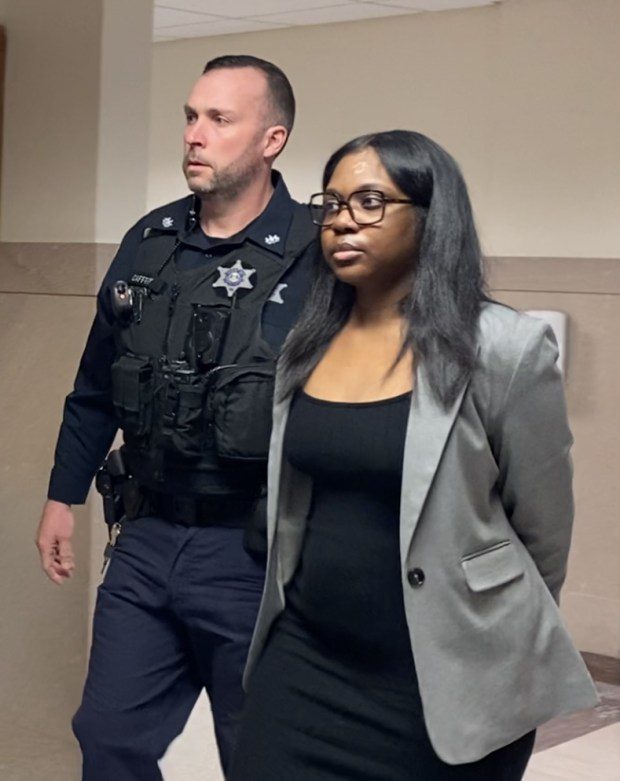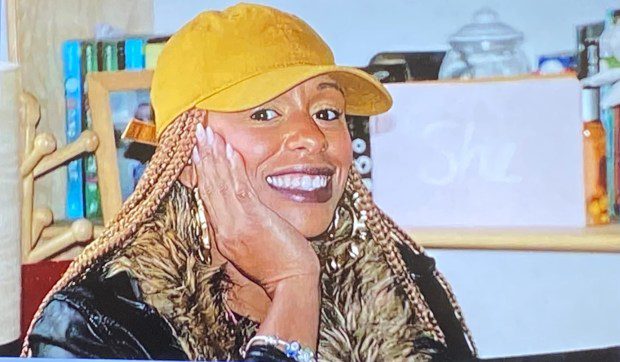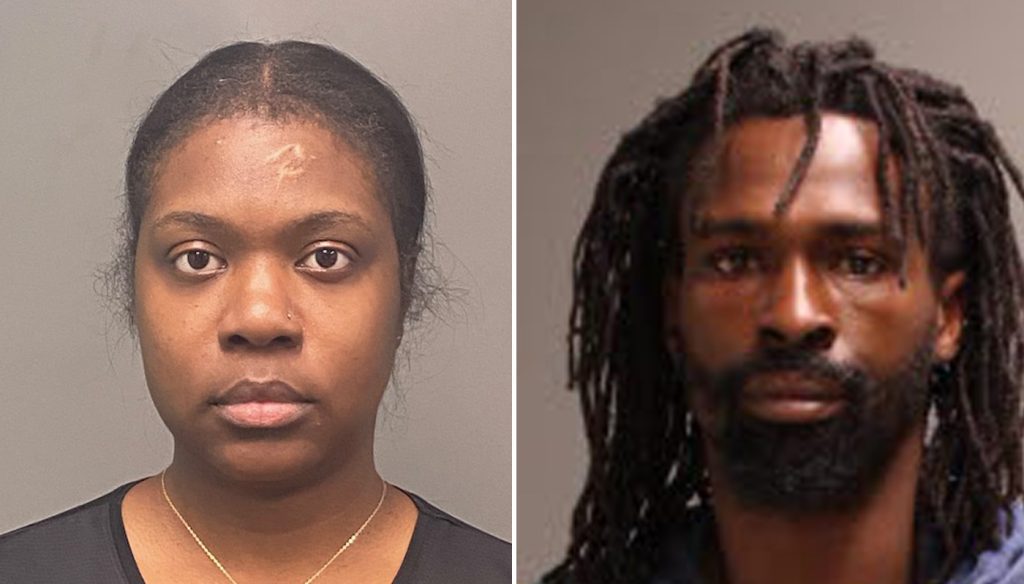A prosecutor told the jury that an Elkins Park woman planned the killing of her romantic rival in a murder-for-hire scheme. A man from Philadelphia carried out the shooting at a Dunkin’ drive-thru in Cheltenham Township.
During her opening statement to the jury, Montgomery County Assistant District Attorney Caroline Rose Goldstein argued that Julie Jean orchestrated the whole plan and Zakkee Alhakim did the shooting.
Goldstein explained that both Alhakim and Jean are charged with accomplice liability in connection with the fatal shooting, as Jean intended for the murder to happen and helped Alhakim to commit it.
Julie Jean, the alleged mastermind, and Alhakim, the alleged shooter, face charges in connection with the death of Rachel Elizabeth King, who was shot in a Dunkin’ drive-thru.

Rachel King, a teacher at a Philadelphia school, was shot multiple times as she sat in her car at the Dunkin’ drive-thru in Cheltenham.
King was on her way to take her son to a violin practice when she was attacked, but her son was unharmed.
District Attorney Kevin R. Steele, who is handling the case, described the killing as a “murder-for-hire.”

Prosecutors alleged that Jean had an affair with King’s boyfriend and continued to harass both King and the boyfriend, leading to a Protection From Abuse Order against Jean.
A prosecutor suggested that Jean wanted to kill King in retaliation for her affair with the boyfriend.
Defense lawyer Shaka M. Johnson suggested that the prosecution’s case was based on “conjecture” and urged jurors to be “critical” of the evidence.
During his opening statement, defense lawyer Shaka M. Johnson argued that the allegation doesn’t make it true.
Defense lawyer Benjamin Cooper suggested that prosecutors have no physical evidence to link Alhakim to the murder.
Cooper claimed there is no tangible or identification evidence, urging jurors not to let sympathy for King sway their decision. He emphasized that the case should not involve sympathy, despite the tragedy.

Jean and Alhakim could be sentenced to life in prison if found guilty of the first-degree murder charge at trial.
A conviction for third-degree murder, which involves malice, carries a potential prison sentence of 20 to 40 years.
The trial before Judge William R. Carpenter is projected to take several days.
The investigation began when Cheltenham police were called to the shopping center at 81 W. Cheltenham Ave. due to a reported shooting. Upon arrival, officers discovered King dead in her Ford Edge vehicle at the Dunkin’ drive-thru. This information is based on the criminal complaint filed by county Detective Gregory Henry and Cheltenham Detective Ryan Murray.
An autopsy revealed that King was killed by multiple gunshot wounds, classified as a homicide.
Investigators found six 9mm fired cartridge casings in the vicinity where Alhakim was standing when he allegedly fired shots into King’s vehicle.
Based on witness statements and surveillance footage, detectives established that Alhakim followed King’s vehicle from her residence in the Lynnewood Gardens Apartments in a silver Mercury Sable. Alhakim parked a short distance away as King pulled into the Dunkin’ drive-thru, then walked to her vehicle's driver’s side window and fired multiple shots before fleeing to his vehicle and leaving, according to the criminal complaint.
Cellphone analysis and surveillance footage also showed that Alhakim had been at King’s residence on Humphrey Merry Way in Cheltenham in the days leading up to the murder, monitoring her movements, according to arrest documents.
Following the shooting, investigators released surveillance photos of the silver Mercury Sable and sought the public’s help in identifying the owner of the vehicle. Shortly after the photos were released, Philadelphia detectives indicated that they believed the same vehicle was involved in a shooting and homicide in Philadelphia on April 7, 2022, and that Alhakim was a suspect in that alleged crime, as outlined in court documents.

11 fired 9mm cartridge casings were recovered by Philadelphia police at the scene of the April 7 murder.
On April 13, investigators received information that a comparison of the 9mm fired cartridge casings from the Cheltenham and Philadelphia homicide scenes determined the same firearm was used in both incidents, according to the criminal complaint.
Alhakim is also facing murder charges in connection with the April 7 incident in Philadelphia.
Alhakim was arrested by Philadelphia police on April 11 just a few hours after King’s deadly shooting while he was driving the Mercury Sable.
The investigation found that Alhakim and Jean knew each other through a common friend and that from February they communicated and met several times before the murder. The Mercury Sable was acquired by Alhakim on March 30 and was bought in Jean’s name, as per court documents.
When police checked Alhakim’s cellphone data, they found evidence that he was in the area of King’s home in the early morning hours of April 11 and near the Dunkin’ store at the time of the fatal shooting.
A further examination of Alhakim’s cellphone revealed a screenshot of a map showing the precise location of King’s home and an overlay in red marker drawing indicating a route directly to the victim’s house, detectives claimed.
Detectives also discovered a screenshot on Alhakim’s cellphone that contained a collage of photographs of King and another screenshot of a photo of King that was displayed on the screen of what is believed to be Jean’s cellphone, according to court documents.
A photo showing a Polymer P80 ghost gun, which matches the firearm authorities think was used to kill King, was also found on Alhakim’s cellphone, according to testimony.
The ghost gun has not been found, authorities said.









